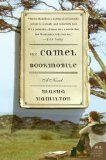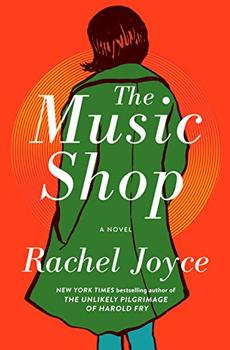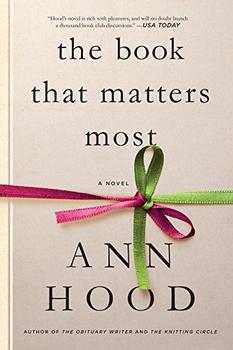Summary | Excerpt | Reading Guide | Reviews | Beyond the book | Read-Alikes | Genres & Themes | Author Bio

The Camel Bookmobile is Masha
Hamilton's third book following her excellent 2004
novel,
The Distance Between Us. 36-year-old New
Yorker, Fi Sweeney, is on a mission to find meaning
in her life by "making a difference". Next stop
Kenya, to take a job as titular head of the camel
bookmobile. Fi knows about books and means well, but
she knows very little about Kenya, and even less
about the semi-nomadic tribes that the mobile
library serves, who are a mystery to most
city-dwelling Kenyans, let alone to foreigners.
The reality of bringing literacy to Africa is
turning out to be quite different to her rose-tinted
vision - the library head is unresponsive to her
ideas for improving the program and she finds some
of the library's rules overly stringent. In fact,
she's effectively excess to requirements in every
respect, except when it comes to appeasing the
Western sponsors of the program who want an American
involved.
Fi's favorite stop on the book mobile's journey is
the village of Mididima, where she gets to know some
of the inhabitants on a superficial level. Luckily
for us readers, we get to know the key characters in
the village far better than she is able to, and thus
are privy to the rising tensions in the village
caused by the mobile library. Just like in any small
town, opinion is split along multiple dividing lines
- some of the villagers are wholeheartedly against
the library because they fear it will threaten the
oral traditions and cohesion of the village; a few
are wholly in favor; but many are caught somewhere
in between, have hidden agendas, or are simply
apathetic to the program.
The Camel Bookmobile raises important
questions but, happily, does not feed us pat
answers. The central question is not so much whether
it is a "good thing" to replace ancient traditions
with modern education, but how to do it in such a
way that the new education adds to the mix without
throwing away valuable knowledge and traditions. It
would seem that there is simply no one size fits all
answer. As we can see from the varying perspectives
of the villagers who narrate the story, the mobile
library changes the lives of all the people it
touches to some degree, sometimes for better,
sometimes for worse. The camel bookmobile, and it's
real life counterpart (see sidebar), provide an
oasis of potential knowledge in a parched land, but
people need to be given the choice as to whether to come
and drink in their own time.
A secondary question is how much should the
"developed" world be involved in spreading written
knowledge to people such as the nomadic tribes of
Eastern Kenya? On the basis of Fiona, who comes
across as tiresomely naive and idealistic much of
the time, Hamilton's answer would appear to be "not
a lot"; at least, they should not be involved at
ground level. However, when it comes to providing
funds to enable programs to be implemented, us rich
Westerners can be of enormous value - as can be seen
by Hamilton's own efforts (see sidebar).
As a reading experience, The Camel Bookmobile
is less satisfying that Hamilton's excellent The
Distance Between Us (set in Israel and the Gaza
Strip). Nonetheless, it certainly qualifies as a
"good read", and a must read for anyone who is, or
plans to be, involved in literacy drives for
developing countries.
![]() This review was originally published in The BookBrowse Review in April 2007, and has been updated for the
April 2008 edition.
Click here to go to this issue.
This review was originally published in The BookBrowse Review in April 2007, and has been updated for the
April 2008 edition.
Click here to go to this issue.

If you liked The Camel Bookmobile, try these:

by Rachel Joyce
Published 2018
A love story and a journey through music, the exquisite and perfectly pitched new novel from the bestselling author of The Unlikely Pilgrimage of Harold Fry and The Love Song of Miss Queenie Hennessy.

by Ann Hood
Published 2017
An enthralling novel about love, loss, secrets, friendship, and the healing power of literature, by the bestselling author of The Knitting Circle.
Your guide toexceptional books
BookBrowse seeks out and recommends the best in contemporary fiction and nonfiction—books that not only engage and entertain but also deepen our understanding of ourselves and the world around us.